The 2024 Paris Olympics are set to commence with a grand opening ceremony along the Seine River, marking a historic event as it will be the first time a Summer Olympics opening ceremony is held outside a stadium. However, just hours before the ceremony, the French National Railway Company (SNCF) reported a series of malicious attacks on the country’s high-speed rail network. These attacks, including acts of arson, have caused significant disruptions, threatening to paralyze the transportation network until the weekend.
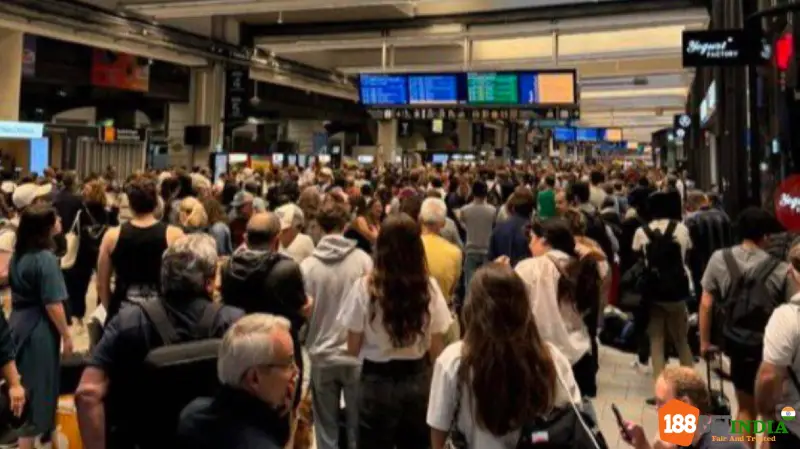
The Attacks: A Coordinated Effort to Disrupt
According to a report from DW, the incidents began in the early hours of July 26th, just as excitement for the opening ceremony was reaching its peak. The SNCF stated to AFP, “This is a large-scale attack aimed at crippling France’s high-speed train network. There have been deliberate acts of arson and vandalism on our railways.” The damage has necessitated immediate evaluations and repair work, with many routes canceled and disruptions expected to last at least through the weekend.
Affected routes include the high-speed connection between Lille and Paris, which was disrupted around 5:15 AM local time due to an attack near Arras. Similarly, the line between Paris and eastern France faced severe interruptions following an incident near Pagny-sur-Moselle. The Atlantic line was also affected by sabotage near Courtalain.
Public Reaction and Government Response
The attacks have resulted in widespread chaos, with social media flooded with images and videos of stranded passengers at various French stations. Commuters expressed frustration over the delays and cancellations, while the broader public voiced concerns over the security measures in place for the Olympics.
French Sports Minister Amélie Oudéa-Castéra condemned the attacks, stating, “This is shocking. An attack on the Olympics is an attack on France.” Her statement underscores the significance of the Olympics not just as a sporting event but as a symbol of national pride and unity.
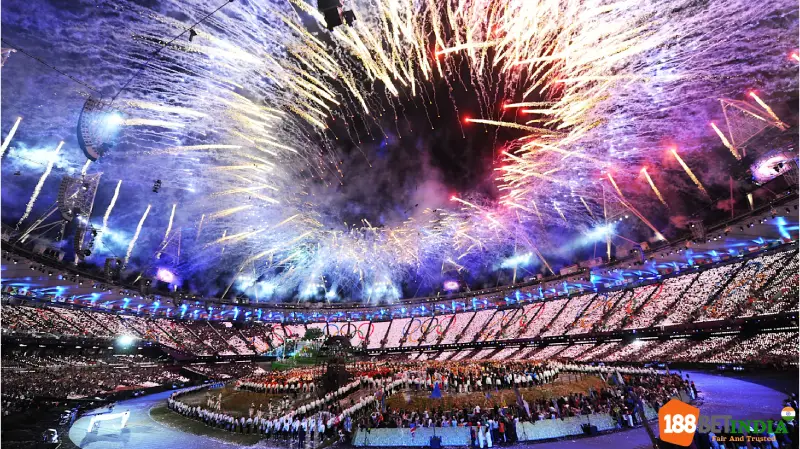
The Opening Ceremony: A Historic First
Despite these setbacks, the Paris Olympics are poised to deliver a memorable and groundbreaking opening ceremony. Scheduled for July 26th at 7:30 PM (Central European Time), the ceremony will see athletes and guests parading along a six-kilometer stretch of the Seine River, flanked by up to 300,000 spectators. This innovative approach aims to showcase France’s diversity and cultural heritage in a unique outdoor setting.
Rumors suggest that performances by international stars like Celine Dion and Lady Gaga will be part of the ceremony, though details remain largely under wraps. Thomas Jolly, the artistic director, has expressed his desire to highlight the multifaceted nature of French culture.
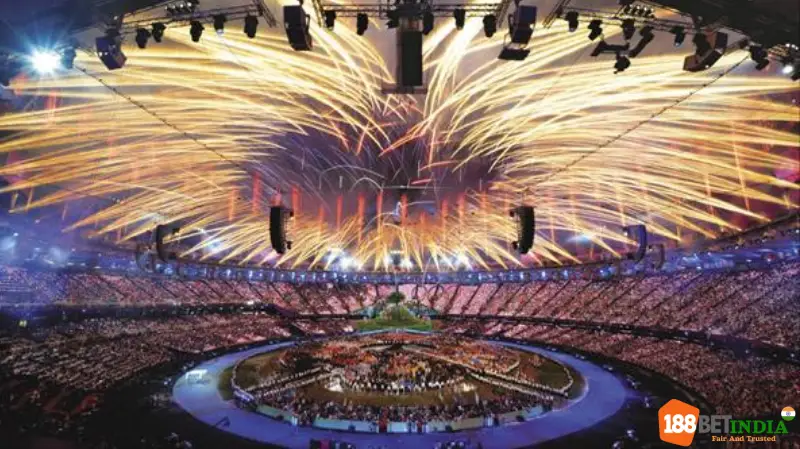
Gender Equality and Participation
This year’s Olympics will also be historic for achieving gender equality among athletes, with 5,250 male and 5,250 female competitors. The effort to create a more inclusive and balanced representation aligns with the Games’ motto, “Games wide open.”
Security and Environmental Measures
Amid the celebratory preparations, security has been a paramount concern. Paris has implemented extensive security measures, with up to 5,000 police officers, soldiers, and private guards on patrol. Access to the Seine River area will be restricted, requiring QR codes for entry to certain zones. These measures, while disruptive to local businesses, are deemed necessary to ensure the safety of participants and spectators.
The environmental sustainability of the Games has also been a focal point, with the organizing committee pledging to make this the most eco-friendly Olympics in history. Only two new venues have been constructed: a water sports center and a facility for badminton and rhythmic gymnastics. Iconic locations like the Stade de France and Roland Garros will host events, blending modernity with historical charm.
Challenges and Controversies
One of the significant challenges in the lead-up to the Games has been the water quality of the Seine River, which will host the triathlon swimming segment and open water events. Swimming in the Seine has been banned for a century due to pollution concerns. Recent tests in June revealed high levels of E. coli, prompting concerns about athlete safety. Paris Mayor Anne Hidalgo took a symbolic swim on July 17th to demonstrate confidence in the water quality, but regular testing will continue to ensure compliance with health standards.
The role of Russian and Belarusian athletes
In the context of the conflict between Russia and Ukraine, Russian and Belarusian athletes will compete as individual neutral athletes (INA), meaning they will not represent their countries with the flag or national anthem. The decision, while controversial, was aimed at preserving the integrity of the Olympics while complying with international sanctions. Athletes from these countries must meet strict standards set by the International Olympic Committee (IOC), including not supporting war and passing a rigorous vetting process.
IOC President Thomas Bach defended the decision, emphasizing the role of athletes as ambassadors for peace. “You are the ambassadors of peace of our time,” Bach told the athletes, stressing the importance of unity and respect within the Olympic community.
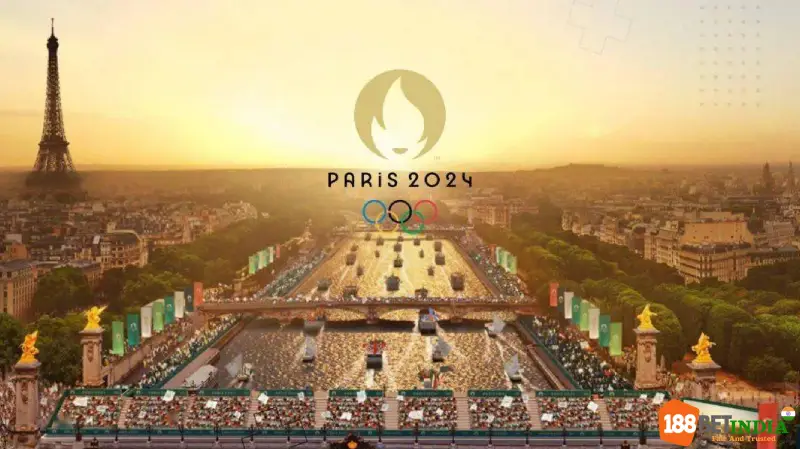
Common problem:
Just hours before the opening of the Paris Olympics, France’s high-speed rail network suffered malicious attacks, including arson, aimed at disrupting traffic.
For the first time in the history of the Summer Olympics, the opening ceremony will be held outside the stadium, with athletes marching along the Seine.
Paris has implemented extensive security measures, including deploying up to 5,000 police, soldiers and private guards and restricting access to certain areas along the Seine.
The 2024 Paris Olympics will achieve gender equality among athletes, with equal numbers of men and women participating.
The organizing committee is committed to making the Paris Olympics the greenest Olympics in history, building only two new venues and repurposing iconic locations for events.
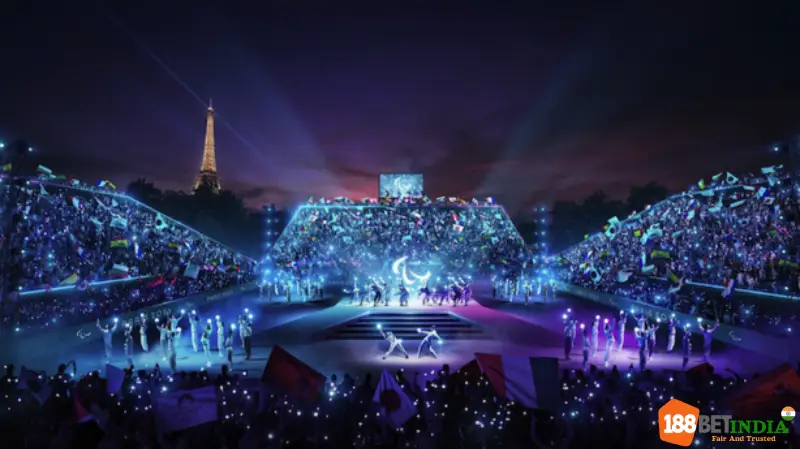
Conclusion
As the world eagerly awaits the 2024 Paris Olympics, recent attacks on France’s high-speed rail network are a stark reminder of the challenges and threats facing this landmark event. Despite these obstacles, Paris is determined to host an unforgettable and historic Games that showcases its rich culture, commitment to gender equality and resilience in the face of adversity. As athletes prepare to take the world stage, the Olympic spirit will endure, promising to celebrate sportsmanship, unity and peace.
